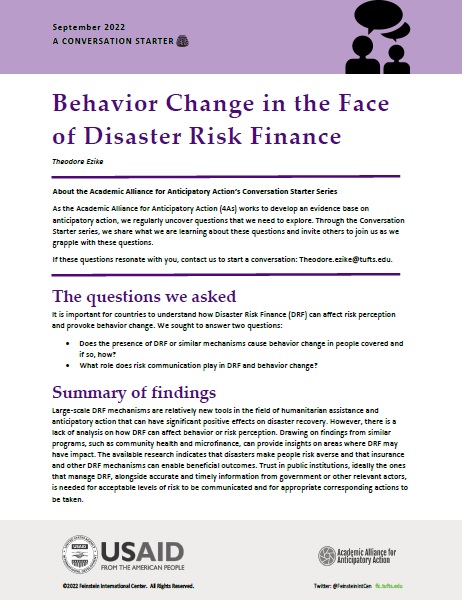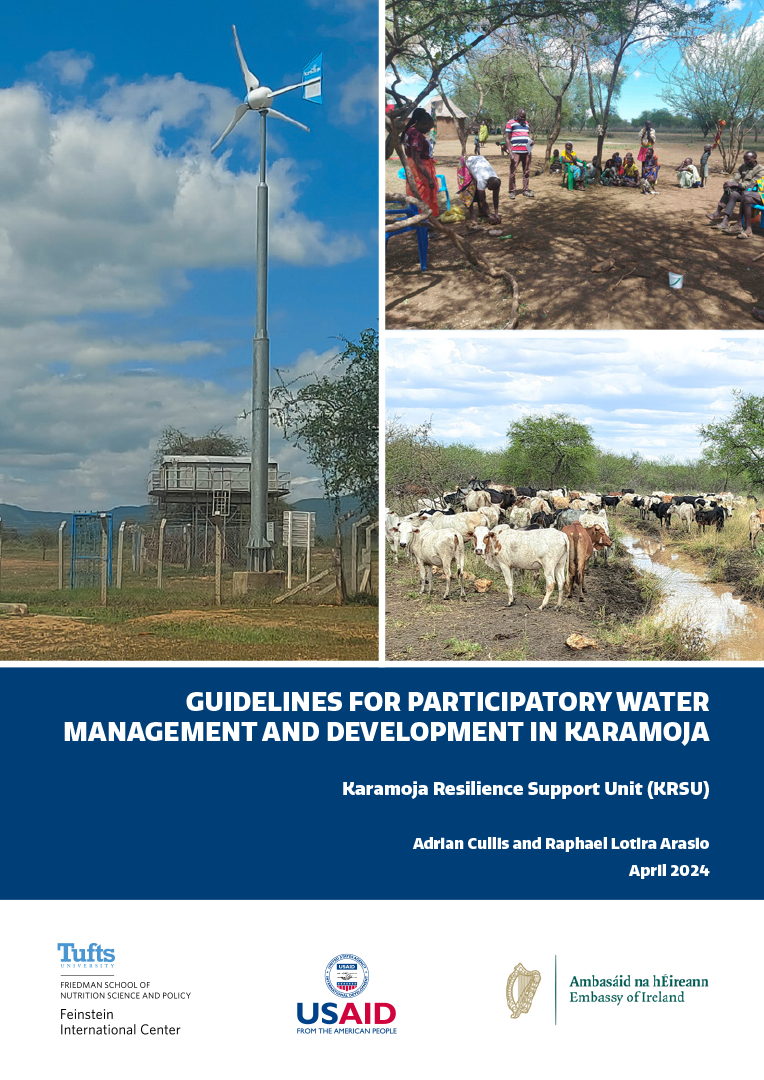Large-scale Disaster Risk Finance (DRF) mechanisms are relatively new tools in the field of humanitarian assistance and anticipatory action that can have significant positive effects on disaster recovery. However, there is a lack of analysis on how DRF can affect behavior or risk perception, which is important for countries to understand. We sought to answer two questions in this Conversation Starter:
- Does the presence of DRF or similar mechanisms cause behavior change in people covered and if so, how?
- What role does risk communication play in DRF and behavior change?
Drawing on findings from similar programs, such as community health and microfinance, provided insights on areas where DRF may have impact on behavior. The available research indicates that disasters make people risk averse and that insurance and other DRF mechanisms can enable beneficial outcomes. Trust in public institutions, ideally the ones that manage DRF, alongside accurate and timely information from government or other relevant actors, is needed for acceptable levels of risk to be communicated and for appropriate corresponding actions to be taken,
About the Academic Alliance for Anticipatory Action’s Conversation Starter Series
As the Academic Alliance for Anticipatory Action (4As) works to develop an evidence base on anticipatory action, we regularly uncover questions that we need to explore. Through the Conversation Starter series, we share what we are learning about these questions and invite others to join us as we grapple with these questions.
If these questions resonate with you, contact us to start a conversation: Theodore.ezike@tufts.edu.







